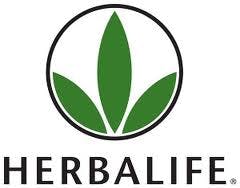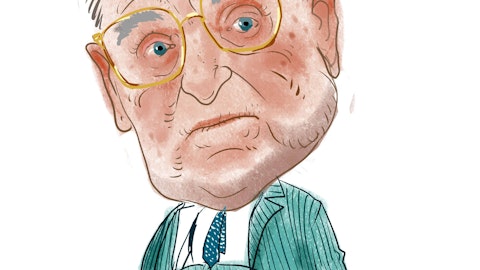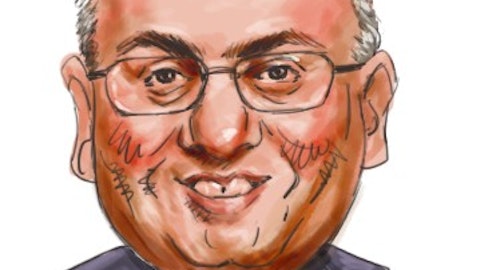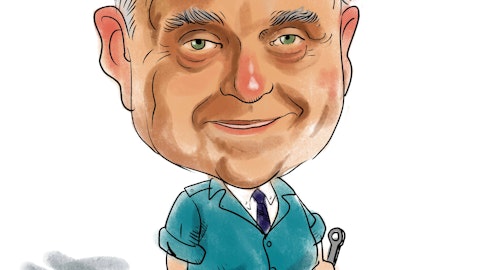The Herbalife Ltd. (NYSE:HLF) debacle has become, for most, an overplayed tune heard on CNBC and read in The Wall Street Journal. Though it’s barely a month old, the controversy surrounding the multi-level marketer aged like Phyllis Diller. The drama has been steaming ahead since mid-December, but before Ackman’s near 400-page slam report, there were SEC investigations, as well as another mega money manager casting doubt on the stock. Following Ackman’s move, more all-stars have weighed in on the most hotly debated pick since the Facebook Inc (NASDAQ:FB) crisis. Honestly, it can all get a little confusing to remember who’s for and who’s against. Take a look at this timeline of events to make sure you are clear and up to date on the protein-powder-fueled battle.
Please, no more

- November 2007: Herbalife discloses that the Los Angeles branch of the SEC opened an inquiry into the company’s practices.
Here, the SEC’s L.A. office questioned the use of products by independent distributors (a big part of Ackman’s presentation as well). The enforcement agency also investigated the a suspicious trade from a mid-level employee. The investigation as concluded with the decision to not press further.
- November 2011: The Commercial Court in Belgium decides that Herbalife is an illegal pyramid scheme.
For whatever reason, this hasn’t often been mentioned by the media, but in my opinion, it certainly should be. The company was ordered to change its practices and pay fines.
- May 2012: Famed short-seller David Einhorn casually asks some questions on an Herbalife conference call; stock plummets.
Though the money manager did not disclose whether he held a short position in the company, many assumed he did after asking a couple suggestive questions. Einhorn asked what percentage of Herbalife’s products are sold to consumers and not just to distributors. The company could not answer. He also asked why and how in the previous year’s 10-K, the company disclosed three tiers of distributors and how much product they represented. The first was self-consumers (27%), small retailers (57%), and sales leaders (14%). Herbalife management said it assumed these three tiers based on the distributor’s volume purchases, and in the latest 10-K had determined the numbers were not material to investors.
Herbalife seemed caught off guard, and the stock tanked before recovering a short while later. We did not hear from Einhorn again regarding the stock.
- June-July 2012: The SEC opens another investigation in Herbalife based on Einhorn’s questions.
Seemingly intrigued by David Einhorn’s questions and the management’s inability to provide thorough answers, the SEC again looked into the business practices of Herbalife. The result was the same—no further action recommended at this time.
- December 2012: Bill Ackman announces a $1 billion short, followed by a 300+ page presentation at the Ira Sohn Conference, alleging why Herbalife is a pyramid scheme.
You know this part; it’s why you can’t turn on CNBC without hearing the words “pyramid scheme” 10 times.
- January 2013: Hedge fund manager Daniel Loeb calls Ackman’s short and takes 8% stake in Herbalife. Other hedge fund manager Carl Icahn jumps on board with Loeb, taking another long position. Other, other hedge fund manager and short-seller Jim Chanos suggests Ackman may be right about Herbalife, allowing for the possibility of his own short position in the company. Other, other, other hedge fund manager Whitney Tilson, creator of the Value Investing Congress, agrees with Ackman and takes a short position.
Typically, big-shot money managers are quiet about their positions and don’t weigh in on the hot stories of the day. But, for some reason, everyone with access to a megaphone and a billion dollars has felt the need to chime in on Herbalife and throw some substantial amount of money on either end of the war. The managers mentioned above are just the ones I found in my research; there could be others involved. Still, every one of these men mentioned above is a world-class investor that legions of investors look to for guidance. So much for guidance…
So there you have it, more than five years’ worth of Herbalife drama summed up in less than 800 words. The most concrete trend through all of this: The stock has climbed more than 100% since the L.A.-branch SEC investigation. Does this mean that none of the negative claims are valid? Not at all. It means that despite a substantial amount of questions and doubt regarding the company’s business model, profits still matter most to the Street.
In my opinion, the one thing that could bring this company down right now is not a fund manager, but the United States government. Invest wisely, Fools, and please don’t go anywhere near this stock until the dust settles.
While you can certainly make huge gains in health care stocks, the best investing approach is to choose great companies and stick with them for the long term. In our free report “3 Stocks That Will Help You Retire Rich,” we name stocks that could help you build long-term wealth and retire well, along with some winning wealth-building strategies that every investor should be aware of. Click here now to keep reading.
The article 5 Years of Herbalife Drama in Review originally appeared on Fool.com.
Fool contributor Michael B. Lewis has no position in any stocks mentioned. The Motley Fool has the following options: Long Jan 2014 $50 Calls on Herbalife Ltd. (NYSE:HLF). Try any of our Foolish newsletter services free for 30 days. We Fools may not all hold the same opinions, but we all believe that considering a diverse range of insights makes us better investors. The Motley Fool has a disclosure policy.
Copyright © 1995 – 2013 The Motley Fool, LLC. All rights reserved. The Motley Fool has a disclosure policy.





